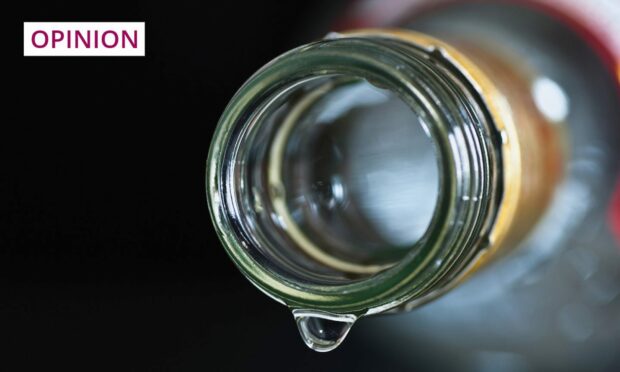On August 29, National Records of Scotland (NRS) released its annual report on alcohol-specific deaths. This revealed that in 2022, 1,276 people tragically died as a direct result of alcohol.
My heart goes out to the parents, children, siblings, partners and friends they have left behind.
This publication comes a week after NRS’s report on drug-related deaths. That revealed that drug-related deaths have fallen by 21% based on the previous year, with this figure at its lowest since 2017.
While the number of drug-related deaths in Scotland is still unacceptably high, we are seeing progress in this complex area. Yet, the number of alcohol-specific deaths has continued to rise year on year since 2012. This is a serious issue in Scotland, and one that requires urgent attention and investment.
We know that deprivation is a factor in the use of both drugs and alcohol. According to NRS, people living in the most deprived areas of Scotland are almost 16 times as likely to die from drug misuse, and 4.3 times more likely to die specifically because of alcohol, than those in the least deprived areas.
Whilst I welcome the fall in the number of drug-related deaths, we still lost 1051 of our folk last year to preventable deaths and I will remain focused on ensuring we support people who use drugs and their families to access the support they need when they need it 1/2 https://t.co/EqpXZbmpUX
— Elena Whitham MSP (@ElenaWhitham) August 22, 2023
While many people associate deprivation with inner cities – Glasgow and Dundee being the focus of last week’s conversations – we know that it also affects rural communities, and it can be difficult for people living remotely to access support. We want to see the introduction of national standards for alcohol treatment, to ensure that high quality, evidence-based support is available when and where it is needed.
Minimum unit pricing is one of the approaches the Scottish Government has introduced to tackle this issue, resulting in a reduction in hospital admissions and other alcohol-related harms. However, this policy is designed to prevent harm to the whole population over a long period of time. It cannot help people who are already dependent on alcohol and whose lives are already at risk.
We hope that the recent creation of the role of minister for drugs and alcohol policy will bring a renewed focus to this issue, allowing alcohol-specific deaths to be addressed with the same determination as the National Drugs Mission.
Year after year, we are losing more people to alcohol than to drugs
With You is a charity that provides free, confidential support with alcohol, drugs and mental health. We help more than 12,000 people in Scotland every month, as well as their friends and family.
More than half of the referrals to our services are for people who need help with their alcohol use. These people are often older adults who have been “social drinkers” for most of their lives before something suddenly changes. This could be feeling bored after retiring, or lonely when children fly the nest, or stressed at work. There are many potential reasons. Through our work, we know that a sudden change creating a dangerous dependency on alcohol can happen to anyone.
Many of those who we support through our alcohol services tell us they feel like ‘frauds’ because they don’t consider their problems to be as serious as those of people using drugs
Many of those who we support through our alcohol services tell us they feel like “frauds” because they don’t consider their problems to be as serious as those of people using drugs. But, year after year, we are losing more people to alcohol than to drugs. As a nation, we need to better acknowledge the depth of this issue in order to change behaviours and save lives.
The chief medical officer’s guidelines state that it is safest not to drink more than 14 units a week on a regular basis. That’s the equivalent of six pints of beer or seven double measures of spirits. The risk of developing a range of health problems, including cancers of the mouth, throat and breast, increases when you drink alcohol regularly.
Today, I encourage you to reflect on the way you – and those around you – use alcohol. If you are worried, then please do get in touch. Our free web chat and phone services can be accessed from anywhere in Scotland, and are a great first step when it comes to asking for help. Whether it’s cutting down how much you drink or stopping altogether, we are with you.
- With You provides free, confidential support to people experiencing issues with drugs, alcohol or mental health, and their families. To find out more, you can visit wearewithyou.org.uk
Belinda Phipps is chief executive at With You
